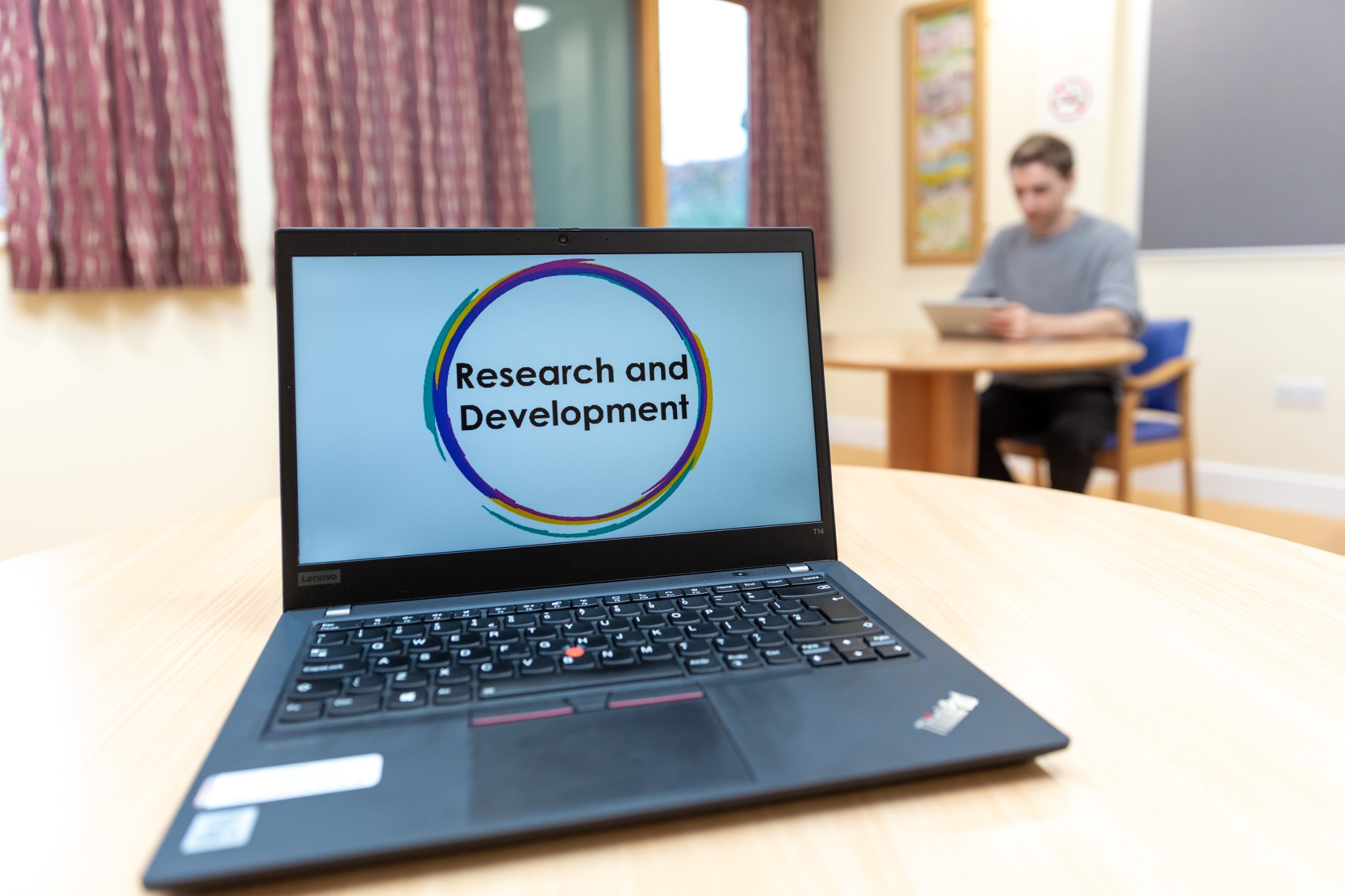Take part in research
In this section, you will find a list of all clinical research studies currently being supported by our department.
Research studies by category (A-Z)
Anxiety and Depression
The GLAD Study is a project set up to explore risk factors in individuals who have experienced depression and/or anxiety, including those with a diagnosis of bipolar disorder, OCD, or related disorders, at any time in their lives.
It aims to better understand depression and anxiety in order to find and develop more effective treatments. The GLAD Study is also part of the NIHR BioResource, which is a library of information about people’s health aiming to support research in both physical and mental health.
To take part in this study, people must:
- Have experienced symptoms of anxiety and/or depression during their life, or have never experienced any mental health condition
- Be aged 16 and above
- Live in the UK
The GLAD Study enrolment process consists of four steps:
- Register on the website www.gladstudy.org.uk and read the Information Sheet
- Provide consent (please put AWP as where you heard about the study)
- Complete a questionnaire
- Provide a saliva sample
AWP Research and Development contacts:
Alexandra Young (alexandra
This study closes on the 01 September 2028
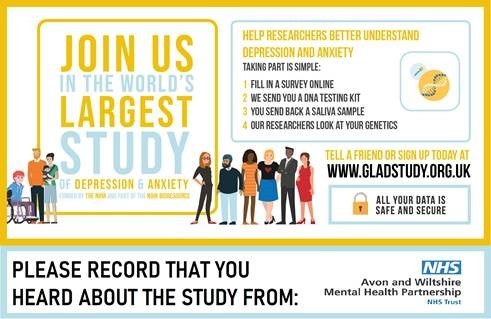
Background
This Social Brain Study looks at how different people seeking support for various mental health difficulties such as anxiety and depression-related problems, behave in social interactions.
The study aims to address some of the current gaps in knowledge and investigate whether there is a relationship between mental health difficulties and social interactions and if so, whether social behaviours can be predicted or modelled using personality/character traits.
This will hopefully improve understanding of mental health difficulties and contribute toward developing more informed and effective treatments.
To take part in this study, people must be:
- On a waiting list for high intensity / step 3 Talking Therapy provided by the Avon and Wiltshire Mental Health Partnership NHS Trust
- Aged 18-60
- Able to read and write in English
- Not have a primary diagnosis of a personality, psychotic, or bipolar disorder
Further information:
The University College London is supporting interested AWP service users to take part in the study.
All parts of the study are completed online using the internet.
Participants interested in taking part are asked to complete a short virtual computer game that investigates social interaction/ behaviour and takes around 30 minutes. Participants are also asked to complete a series of self-report questionnaires covering a range of different topics.
Participants will be asked to complete this part of the study in their own time over a 2-3 week period, whilst waiting to start their therapy.
The study also involves a follow up part, which will commence once a participant has started therapy. During this follow up stage, participants are asked to complete 2 short questionnaires every 2 weeks, that take around 5 minutes each.
The Social Brain Study is offering participants a £35 payment at the end of the study as a thank you.
AWP Research and Development contacts:
Darren French, Research Nurse (d
This study will close to new applicants on the 31 December 2024.
Bipolar and Psychosis
Attention-Deficit Hyperactivity Disorder (ADHD) is a neurodevelopmental disorder, which involves inattention, hyperactivity and impulsivity. ADHD starts in childhood and often continues into adulthood. ADHD in adults commonly occurs alongside bipolar disorder or psychosis.
ADHD is typically treated with stimulant and non-stimulant medications. The National Institute of Health and Care Excellence (NICE) ADHD guidelines recommend the stimulants, Lisdexamfetamine or Methylphenidate as first line medications. These medications are more effective than the non-stimulant medication, Atomoxetine.
The longer term effects of ADHD medications on those with co-occurring bipolar disorder or psychosis are not well understood.
This trial aims to evaluate the clinical and cost effectiveness of the stimulant Lisdexamfetamine compared with non-stimulant Atomoxetine, as medication for adults with ADHD and a history of either psychosis or bipolar disorder.
Inclusion criteria:
- Aged 18 years or above
- Have a diagnosis of ADHD
- Have a diagnosis of psychosis or bipolar disorder
- Be a current service user with AWP services
- Clinically stable enough in the opinion of the clinical investigator to be able to engage in trial procedures
- Not currently taking medication for ADHD, or having been on ADHD medication within the past month
- Able and willing to give informed consent to take part in the trial
Exclusion criteria:
- Taking part in another interventional or conflicting clinical trial
- Experiencing an acute episode of psychosis or bipolar disorder
- Be at severe risk of suicide and/or violence to others
- Have severe drug seeking behaviour or current drug or alcohol withdrawal syndrome
- Have a history of epilepsy or seizures
- Have Congenital or acquired long QT syndrome (LQTS) or a family history of QT prolongation
- Be taking certain medications which may exclude someone from being eligible to take part, therefore current prescribed medication will be checked by a Doctor before being enrolled into the trial
- Pregnancy, as checked with a spot urine test
- Unwilling to take highly effective contraception measures to prevent pregnancy during the trial period and for 30 days after administration of the last trial medication dose
Further information:
People interested in taking part in this trial will first go through a screening process to ensure that they meet the eligibility criteria to take part in the main trial. This screening process will include health related questions and confirmation of ADHD diagnosis.
If eligible to take part in the main trial, people are invited to give informed consent. Once consented, researchers will ask them further questions about their health using interviews and self-reported questionnaires. This process could take 2 to 3 hours to complete, after which people taking part are randomly allocated to receive either Lisdexamfetamine or Atomoxetine.
People taking part in the trial would be asked to take the allocated medication for 6 months, which a doctor would regularly prescribe. However, appointments would continue until 12 months after starting the trial.
People in the trial will have regular medication monitoring with their care team throughout the trial.
The research team would meet with people taking part in the trial at 3, 6, 9 and 12 months into the trial. These visits will last around an hour. During these visits, those taking part will be asked to repeat some of the interviews and self-reported questionnaires that they completed at the start of the trial.
The research team will offer those taking part a £25 shopping voucher as a thank you after completing the first (baseline visit) and last visit at 12 months. People taking part in the trial will be offered a £100 shopping voucher after the visit at 6 months.
Those running this trial are also interested to learn how informal carers or supporters help those taking part with their condition. This could be a family member, relative or friend 18 years-old and above. Those taking part of the trial, will be asked whether they would like to invite an informal carer or supporter to also take part. This would involve completing some short questionnaires about their personal health and lifestyle.
AWP Research and Development contact information:
If you are interested in finding out more about taking part in this trial, please contact: Darren French and Mashal Asif at awp
This trial closes on the 31 May 2026
When somebody with bipolar disorder experiences depression, it can be difficult to treat. Depression in bipolar disorder responds differently to psychological interventions than depression in people who have never experienced mania or hypomania. Currently there is limited evidence for the use of antidepressants in bipolar disorder.
The ASCEnD study aims to understand whether the combination of the antipsychotic aripiprazole and an antidepressant called sertraline will improve symptoms of depression in adults with bipolar.
To take part people must:
- Be aged 18 or above
- Be an Avon and Wiltshire Mental Health Partnership NHS Trust service user
- Have a diagnosis of a depressive episode within bipolar disorder
- Be uncertain of their next course of medication treatment
- Not have a severe substance use disorder
Further information:
Participating in the study will last up to 24 weeks. Participants will be randomly allocated (like tossing a coin) to receive either a combination sertraline/aripiprazole combination or the antipsychotic quetiapine. Participants will be supported by a study doctor during this time period.
At the beginning of the study, participants will attend an appointment with the local research team to discuss the study and eligibility to take part. This meeting will also involve completion of some questionnaires about the participant and their health.
Participants will then complete weekly online questionnaires at home about their mood and quality of live during the 24 weeks of the study. Participants will also receive a weekly phone call from a study research assistant to discuss mood, behaviours, symptoms, and medication.
Some participants will have the opportunity to be interviewed about their experiences of taking part in the study.
Participants who are eligible for the study will receive a £15 voucher at the initial study appointment, a £20 voucher at week 14 of the study, and another £15 voucher upon completion of participation in the study to thank them for their time.
Contact details:
If you have any questions or would like further information please contact a member of the AWP Research and Development team at the following email address:
This study closes on the 31 August 2025
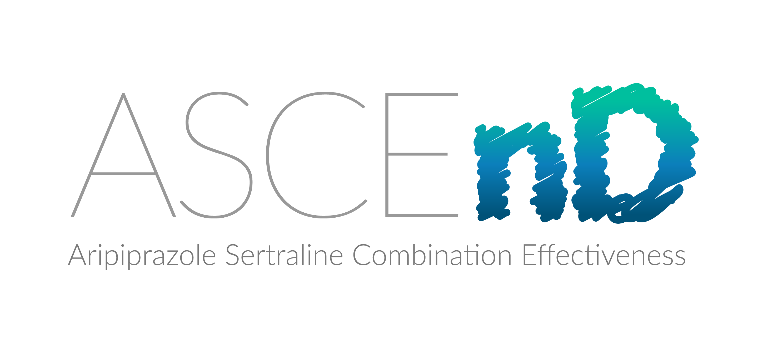
The Integrated Bipolar Parenting Intervention Trial (IBPI) team based at Lancaster University and Lancashire and South Cumbria NHS Foundation Trust are trying to find out whether providing online parenting support for parents with bipolar disorder (BD) helps parents to feel less stressed, have more confidence and experience fewer mood problems. The trial also aims to see whether use of the support leads their children to having fewer behavioural and emotional problems.
To take part in this trial, people must:
- Have a diagnosis of Bipolar Disorder (BD)
- Have a child aged 4-10 years old, with whom you have at least 10 hours of contact with a week
- Have access to the internet
Further Information:
The Integrated Bipolar Parenting Intervention (IBPI) is an online tool that combines parenting support with helpful strategies for managing bipolar, and can be accessed on computers, mobile phones or tablets.
Individuals will be randomly allocated (50/50 chance) to receive the intervention or to receive what would be considered their usual care. Those that are allocated to receive usual care will be able to access the IBPI tool once they have completed the trial (after 48 weeks).
All activities related to the IBPI Trial will be done remotely / online.
If you are interested in finding out more and registering your interest, please visit: Bipolar-Parenting-Study | Lancaster University
IBPI Trial contact:
Telephone: 07507 856960
Email: ibpi@lancaster.ac.uk
Website: www.lancs.ac.uk/spectrum/IBPI
This study will close on the 30 November 2025

Some people feel worried and concerned that others are trying to harm them. This can lead to people feeling unsafe and not doing the activities they enjoy. Feeling Safer is a new guided online therapy programme. It is designed to help people feel safer, happier, and get back to doing more of the things they want to be doing.
This study aims to find out whether the Feeling Safer programme can help people to feel less worried that other people are going to harm them. The study will also explore if Feeling Safer leads to other improvements in people’s lives. For example, activity levels, anxiety and quality of life.
To take part, people must:
- Be age 16 or over
- Have strong beliefs and worries that someone is trying to harm them in some way
- Be attending mental health services within AWP for a diagnosis of psychosis
Further information:
Eligible people who want to take part will be randomly placed into groups. We need some participants to continue with their usual care. This is so that we can work out how effective Feeling Safer is compared to usual treatment. This means the following:
- three quarters of participants will receive Feeling Safer as well as continuing with their usual treatment
- a quarter of participants will only receive their usual treatment
People receiving Feeling Safer will access it using an online program.
If people do not have a suitable device to access the Feeling Safer program, one can be provided for the study.
People will be expected to log into the Feeling Safer program two or three times a week for about 20 minutes.
The therapy is individualised. This means people can choose which parts of the programme they want to do. Possible topics include how to improve sleep or feel more self-confident.
People receiving Feeling Safer will be allocated a trained staff member who will guide and support them through the therapy.
Another study aim is to check that the therapy works well when delivered by different staff professions.
People receiving Feeling Safer will be randomly allocated support from:
- a clinical psychologist
- a lived experience researcher
- a graduate mental health worker, such as an assistant psychologist
All participants will be asked to meet with a research assistant to assess how they are getting on with the study. These assessments take place at the beginning of the study, then after 3, 6 and 9 months. Participation in the study will last about 9 months.
Participants will be offered £15 for each assessment they complete, as a thank you for their time. There are four assessments in the study, so the total thank you per participant is £60.
AWP contact information:
Research coordinators:
Joanna Morris-Bone
Monalisa Bora-White
Research Assistants:
Alicia Ladbrook
Hollie Hymas
Email: awp.feelingsafertrial@nhs.net
This study closes on the 31 January 2026
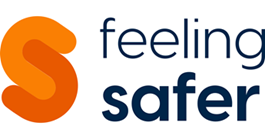
Psychotic disorders, including Schizophrenia affect many people. Evidence suggests that inflammation in the body may have a role in the development of psychotic symptoms and may make it difficult for people to get better despite taking anti-psychotic medication.
This study aims to examine the role of inflammation in psychosis. To test this, participants who have inflammation will be randomly allocated to receive either the study intervention which is a single Intravenous (IV) infusion of an anti-inflammatory medication which already exists called Tocilizumab or the study control, which is a single IV infusion of normal saline solution which will have no effect on levels of inflammation in the body. Participants will not know whether they have received the intervention or control.
The study will examine if reducing levels of inflammation using the medication can help reduce symptoms of psychosis.
This study will support us to understand whether inflammation has a role in causing psychosis and if in the future, anti-inflammatory drugs may help in the treatment of psychosis for some people.
To take part in this study, people must be:
- Aged 18-65 years old
- Diagnosis of psychosis (Schizophrenia or related psychoses) and within three years of first diagnosis of psychotic disorder
- If on anti-psychotic medication, stable on treatment regime with no changes in the past 2 weeks
- Currently under the care of AWP Early Intervention in Psychosis Teams
- Able to give informed consent, including consent to share information with your General Practitioner (GP) and to access secondary care and GP records
- Able to understand written and spoken English
- Able to consent to providing blood samples
- Willing to abstain from strenuous exercise for 72 hours before the assessment visits
- Not pregnant (confirmed by urine pregnancy test) or breast-feeding
- There are other study eligibility criteria, which includes a number of co-morbid physical and mental health conditions and history, which are not listed above. If you have any questions about the criteria specifically, please email awp
.pimsresearchtrial @nhs.net
Further information:
Service users interested in taking part in the trial will be invited to attend a couple of in person appointments. During these appointments, service users will be provided with information about the study, be asked to provide informed consent and will be assessed for suitability for the trial. During these appointments, service users will complete some questionnaires, cognitive tests and provide blood samples. (There is also an optional MRI scan).
Participants with evidence of inflammation (measured by a blood test), will also be asked to complete some further blood tests and a chest X-Ray before being randomised into the study.
Participants with no evidence of inflammation, will stop taking part in the study at this stage.
Participants who have of psychosis and inflammation who are eligible to take part in the trial, will be randomised to receive either a single dose of Tocilizumab or normal saline solution, which are administered via intravenous (IV) infusion.
The study also involves some follow up appointments at 7 days, 14 days and 28 days after receiving the infusion. During these appointments, participants are asked to complete further blood tests, questionnaires and cognitive tests (there is also an optional MRI scan).
Participation in the trial will end at 42 days after receiving the infusion when participants are contacted by the study team for a final check in.
Eligible service users who take part in the trial will be offered payment after completing different stages of the study, as a thank you for their time.
Participants can also claim reimbursement for travel expenses.
AWP Research and Development contacts:
If you wish to discuss the PIMS Trial or are interested in taking part in the study, you can contact the PIMS study team by email awp
This study will close on the 30 November 2025
Many people attending mental health services have difficulties sleeping.
Difficulties sleeping could include the following:
- Lying in bed for hours without sleep
- Having nightmares
- Being up all night because of fears or hearing voices
- Sleeping a lot in the day
- Having very irregular sleep patterns and sleeping at the wrong times
This study aims to find out if an eight-session sleep therapy can improve sleep compared to support available routinely on the NHS.
The study team also want to find out whether improving sleep brings other benefits to a person’s life. For example, if it improves mood, concentration, and thinking.
To take part in this study, people must be:
- Aged 16 years and above who have difficulties sleeping, and who are attending AWP mental health services for conditions such as psychosis
OR
- Aged 14 years and above who have difficulties sleeping, and who are attending AWP mental health services for other difficulties such as worries about other people or hearing voices
Further information:
Everyone eligible and who choose to take part will be asked to meet with a research assistant for an assessment at the start of the study. Following this assessment the person will be randomly allocated to receive either the sleep therapy or the normal treatment available through their care team.
There are two further assessments, one at 12 weeks and the other at 24 weeks into the study. Each assessment involves completing questionnaires and answering questions with a researcher, which can last up to 3 hours each time. People taking part would be welcome to take breaks when needed or complete each assessment over several meetings to reduce fatigue.
Participation in the study lasts about six monthly in total. If people are allocated to receive the sleep therapy, it involves eight sessions over twelve weeks.
People taking part will receive £15 for each of the three assessment sessions they take part in. If all three assessment sessions are completed this will be a total of £45. The study team will also reimburse any reasonable travel costs for attending the assessments.
AWP contact information:
awp
This study closes on the 31 December 2026
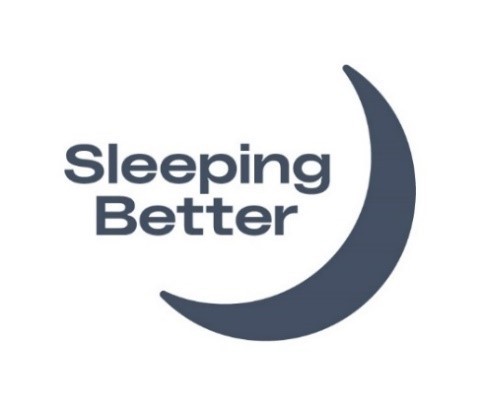
Please note: This study has reached recruitment target. As such, new expressions of interest cannot be honoured.
Some people with bipolar disorder experience ongoing low mood or mood swings outside of episodes of depression or mania. There is not yet a therapy designed to address these ongoing symptoms.
The University of Exeter is currently running a study testing a new talking therapy they have developed for people who have ongoing symptoms of bipolar disorder between major episodes. The findings of this study will help the study team to plan for a larger, future trial of the therapy that will be able to say whether or not it would be a helpful addition to the care that is currently available in the NHS for people with ongoing bipolar symptoms.
To take part in this study, people must:
- Be aged 18 or over
- Meet diagnostic criteria for Bipolar I or II Disorder, Other Specified Bipolar Disorder, or Cyclothymic Disorder
- Not currently be experiencing a manic or severe depressive episode
- Currently experiencing inter-episode bipolar symptoms
- Be willing to engage in psychological work addressing inter-episode bipolar symptoms
- Have an understanding of written and spoken English
- Be registered with a General Practitioner within the Avon and Wiltshire Mental Health Partnership NHS Trust catchment
- Have no current substance dependence
- Not be receiving another psychological therapy for bipolar disorder
If you have any questions about the criteria for this study please email awp
Further information:
Taking part in this study will involve an initial screening telephone or video call with a member of AWP’s research team to check eligibility. This call will take around 20 minutes. People who may be eligible to take part will then be asked to attend a baseline assessment in person at an AWP site. This assessment will take around 2 to 3 hours.
STABILISE is a randomised control trial, this means eligible people will be allocated randomly (50/50 chance) to receive either the STABILISE talking therapy or treatment-as-usual.
The STABILISE talking therapy is a behavioural therapy designed to support people experiencing ongoing inter-episode bipolar symptoms. This will involve up to 22 individual therapy sessions delivered face-to-face, online, or by phone.
Everyone who takes part in the study will be asked to complete sets of questionnaires at 3, 7, and 12 months after starting the study. Participants will be able to receive a £20 thank you payment for completing the baseline assessment and each of the three follow-up assessment. This would mean a total of £80 for completing all assessments.
Contact information:
Chief Investigator, Dr Kim Wright: (K
Study website: https://www.exeter.ac.uk/research/mooddisorders/research/currentprojects/stabilise/
Click here to link the a video of the study participant information sheet
This study closes on the 30 June 2025

Visual hallucinations can be distressing and have a negative impact on people’s lives. There is little research into how visual hallucinations are experienced by those with non-affective psychosis.
The VISION-QUEST study aims to develop and test a new questionnaire to understand people’s beliefs about visual hallucinations. This questionnaire will also explore some physical and psychological factors thought to influence visual hallucinations.
To take part in this study, individuals must:
- Be aged 16 years or above
- Be diagnosed with non-affective psychosis; including schizophrenia, schizoaffective disorder, delusional disorder, psychosis not otherwise specified
- Be experiencing visual hallucinations within last month
- Be currently accessing AWP adult secondary care services
- Be willing and able to give informed consent
Individuals will not be able to take part in this study if they have:
- Insufficient English language to understand and complete questionnaires
- Visions as a result of organic disorder or brain injury, or when only under the influence of substances
Further information:
Those that take part will be asked to complete a questionnaire pack, which should take 30-45mins to complete. This pack can be completed either online or face-to-face with a researcher.
A payment of £10 or equivalent in shopping vouchers will be offered as a thank you for taking part in the study.
A small group that take part will also have the option to complete a similar questionnaire one week later. These questionnaires will take around 15 minutes to complete. These follow-up questionnaires will allow researchers to assess the new measure for visual hallucinations, which is being developed.
A second payment of £10 or equivalent shopping voucher will be offered as a thank you for completing the follow-up part of the study.
Contact:
This study closes on the 31 March 2026
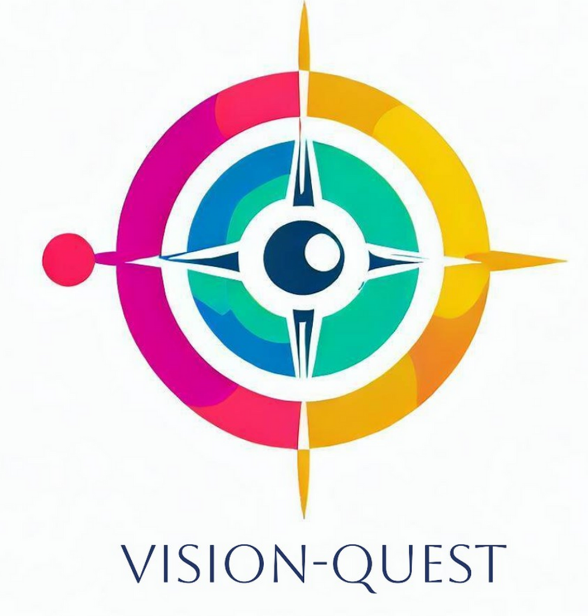
Child and Adolescent Mental Health
A research study team from University College London are interested in understanding the reasons behind diagnostic and treatment decision-making by Child and Adolescent Mental Health Service (CAMHS) clinicians in England. The Researchers hope this study will contribute towards improving mental health care for young people.
To take part in this study, people must:
- Be a qualified mental health clinician working in CAMHS in England or have previously worked with Children and Young People in a mental health context
Clinicians from a range of professional backgrounds are welcome to take part in this research, including psychologists, psychiatrists, nurses, and occupational therapists.
Further information:
This research study consists of an online survey that takes around 20 minutes to complete. In advance of the survey, those considering taking part will be provided with an online participant information sheet and informed consent form relating to the study. The study includes questions about the participant professional background and two clinical vignettes, which those taking part will be asked to read and answer questions about. Taking part in this study is completely voluntary. Those that complete this study will be offered a £10 voucher as a thank you for their time.
If you would like further information and/or the online link to this study, please visit: https://tinyurl.com/CAMHSvignette
AWP Research and Development contact:
Jo Morris-Bone (jo
If you would like to contact the research team directly, please email aim
This study closes to recruitment on the 31 December 2025
Dementia
Most people living with dementia are cared for at home by family or other unpaid, untrained carers without additional support.
Research shows that the emotional and physical demands of providing care can lead to significant health problems for carers.
Family members of people newly diagnosed with dementia often don’t use support services either because they don’t see themselves as ‘carers’, don’t feel the need, or struggle with acceptance due to stigma.
Receiving support early after diagnosis may prevent later psychosocial problems and high levels of burden for carers.
There is a need for interventions to support carers that can be accessed flexibly, without requiring carers to leave their relatives at home or make alternative care arrangements.
CareCoach aims to understand if using an online support package for carers, with the guidance of a trained coach, will influence carer’s sense of being able to care well, their mood, and quality of life.
To take part in this study, people must:
- Be 18 years-old or over
- Live in the UK
- Be currently providing care/support (unpaid*) for a person living with dementia who has been diagnosed with dementia in the last 5 years
- The person living with dementia must not be living in a care home
- Be a family member (for example spouse, sibling, son, daughter) or have a close personal relationship with the person living with dementia
- Be looking to learn new skills and knowledge to cope well while caring for someone living with dementia
- Have access to a device with a camera and microphone which connects to the internet
- Be able to engage in and understand the programme delivered in English, with the help of family interpreter, if required
Multiple members of the same family should not sign up to the study if caring for the same person living with dementia
*Family carers claiming carer’s allowance are not excluded.
Further information:
Anyone interested in taking part will be asked some questions over the phone to see if the study is suitable for them to take part in.
Those eligible and who consent to taking part will be sent a questionnaire online or by post asking about their wellbeing, the care and support they give, and the person living with dementia who they care for.
After completing the questionnaire, participants will then be randomly allocated to one of two groups:
- The CareCoach group will receive the CareCoach intervention.
- The usual care group will receive the care that is normally available to them, at the end of the study they will be offered access to the online CareCoach modules.
Both groups will be involved in the study for 6 months, after agreeing to take part. The study can all be completed at home.
The CareCoach intervention is an 8-week online support package. People taking part in the study using CareCoach are supported and guided by a ‘coach’, this person will be a health or social care worker or a dementia charity worker. The coach will meet with the person taking part at the start and finish of the 8-week period. During this period, those receiving the CareCoach intervention would complete the support package on their own.
Both groups will be asked to complete another questionnaire at two times during the study:
- 10 weeks after the start of the study
- 6-months after the start of the study
After finishing the final questionnaire at 6-months, those taking part will receive a £20 gift voucher as a thank you for taking part in the study.
AWP contact information:
Emily Avent - e
Sally Bowman - sally
This study closes of the 27 February 2026

Eating Disorders
Eating disorders are a serious mental illness and there is increasing evidence to suggest they are a progressive disorder.
This means symptoms can become more severe over time.
It is important to understand the factors that drive change between different illness stages in eating disorders.
The STORY study aims to increase understanding of eating disorder progression in a diverse group of young people over time, as well as the factors that help and hinder recovery.
To take part in this study people must:
- Be aged 16-25 years old
- Have an eating disorder (anorexia nervosa, binge eating disorder, bulimia nervosa, or any other related eating or feeding disorder)
- Be under the care of AWP mental health services
- Have access and ability to complete online assessments via smartphone and/or computer
- Be willing and able to install the RADAR Active App on their own smartphone or on a smartphone provided by the study team, during the 12-month data collection period
Further information:
Taking part in the study will last 12 months. During this time, people taking part will be asked to complete online surveys and tasks on their computer or smartphone at regular intervals.
People taking part will be asked to install 2 Apps on to their phone or on to a phone they receive as part of the study. One App will collect active measurements, where you will be asked to answer some questions about your behaviours or mood. You may also be asked to complete a short speech task. The other App is optional and is a passive App, that will collect information about your environment and phone usage. Information collected by these apps will go directly to the STORY Study team and are not available to the person taking part.
There is also an option to wear a Ōura ring on a chosen finger. This is a piece of wearable technology that can measure physical indicators of your well-being, mood and stress.
People taking part in the study will also have the option of brain scans and cognitive tasks at the research centre in London. These are optional at the start of study and at the 12 month point.
The STORY study team would like to thank people taking part for their contributions. People taking part will be offered £20 for a baseline assessment, this will involve an online questionnaire and cognitive tasks. People taking part would then be offered £15 for each follow-up assessment which will again involve an online questionnaire and cognitive tasks. These will happen at the 6 month and 12 month time points. At the end of the study, if people taking part complete the remote part of the study involving the smartphone Apps, they will be offered a £25 reward.
AWP Research and Development contact information:
Sally Bowman (sally
This study closes on the 01 July 2025

EDGI is a project set up to explore risk factors in individuals who have experienced eating disorders, including anorexia nervosa, bulimia nervosa, binge-eating disorder or any other eating disorder at any time in their lives.
It aims to better understand the genetic and environmental links to eating disorders in order to improve treatments for current and future patients. EDGI is also part of the NIHR BioResource, which is a library of information about people’s health aiming to support research in both physical and mental health.
To take part in this study, people must:
- Be aged 16 and above
- Live in England
- Be currently experiencing or have experienced an eating disorder
The EGDI study process involves of four steps:
- Registering on the website edgiuk.org and reading the information sheet
- Providing consent using the online form (please put AWP as where you heard about the study)
- Completing a questionnaire
- Providing a saliva sample
AWP Research and Development contact:
This study will close on the 31 March 2028
Perinatal
The National Centre for Mental Health (NCMH) is heading an important research study called Maternal Wellbeing, Mental Health and Life Experiences.
This is an online survey that’s looking to understand more about how life experiences and COVID-19 have impacted on maternal wellbeing and mental health during the perinatal period.
We hope the findings will lead to new and improved ways of recognising and providing support in times of need.
The survey can be found here.
To take part in this study, people must:
- Be over 18-years-old
- Be pregnant or have given birth in the last 12 months
Individuals with or without a mental health diagnosis are welcome to complete the survey.
Participants will also be entered into a prize draw to win up to the value of £100 for their continued participation in the follow up maternal mental health surveys.
AWP Research and Development contacts:
Alexandra Young (alexandra
This study closes on the 31 October 2025
Physical health
People with severe mental illness (SMI) have significant needs in terms of physical health compared to the general population.
Programmes have been introduced to address this; however, sexual health has often been excluded. Like everyone else, positive sexual relationships are important for people with SMI, but this is rarely discussed in routine mental health care.
Therefore, people with SMI can be unaware of important information, such as where to get sexual health advice, how to reduce risk of sexually transmitted infections, contraceptive choices, and finding relationships that are mutually respectful, not violent or abusive.
The current study is hoping to determine whether three sessions of a tailored sexual health intervention, called moreRESPECT, is effective and cost-effective in reducing unprotected sexual acts, increasing knowledge about sexually transmitted infections, motivation to engage in safer sex, and condom use.
People who agree to take part in the study will be randomly allocated to receive either usual care or usual care, as well as the moreRESPECT intervention.
Both groups will be asked to complete study questionnaires at 4 different time points.
To take part in this study people must:
- Aged 16 years or over
- Diagnosed with a Severe Mental Illness (SMI)*
- Receiving care from any form of AWP community mental health service or inpatient mental health unit, if awaiting to be discharged, but remaining in inpatient care due to the unavailability of suitable community placement
- Willing and able to give informed consent to take part in the study
*There is no agreed definition of SMI, but for the study, this would include a primary diagnosis of schizophrenia, schizoaffective disorder, or delusional/psychotic illness, or bipolar disorder, or major depression (with or without psychotic features), or severe anxiety, or eating disorder, or personality disorder.
People cannot take part in this study if they:
- Pose a current risk to others, including risks of sexual and/or physical violence
- Have a moderate-severe learning disability or other significant cognitive impairment
- Are known to be on the sex offenders register
Further information:
The sexual health information sessions will be delivered over 3, one-hour, one-to-one sessions by a person from the local NHS service, who has received specific training from the study team.
Everyone taking part in the study will be asked to complete questionnaires to collect data on information related to sexual health; including being asked about sex, relationships and contraception.
Questionnaire data will be collected during a one-to-one meeting with a researcher, which can take place face-to-face or remotely using online videoconferencing.
Participants will be asked to complete questionnaires when they join the study, and again at 3 months, 6 months, 9 months and 12 months. Each meeting will last for approximately 1 hour.
As a thank you for their time, each participant will receive a £10 voucher each time they complete and return a self-completed questionnaire (which happens at first assessment, 3, 6, 9 and 12 months). This would be a maximum of up to five vouchers per participant.
AWP contact information:
The research staff working on the moreRESPECT trial in AWP are:
Ali Young - alexandra.young6@nhs.net
Mashal Asif - mashal
This study closes on the 27 October 2025
Trauma
The National Centre for Mental Health (NCMH) is heading an important research study called National Centre for Mental Health Trauma Survey.
This is an online survey looking to understand more about trauma (experienced as a child and in adulthood) and its impact on mental health.
We hope the findings will help improve diagnosis, treatment and support for those who have experienced traumatic events.
To take part in this study people must:
- Be 18 years-old or over
- Have experienced a traumatic event, as a child or in adulthood
Individuals with or without a mental health diagnosis are welcome to complete the survey
Further information:
The online survey will take approximately 10-15 minutes and will ask you to:
- Provide your contact details (for example address, email address and phone number) and some personal information (for example date of birth, ethnic group and employment status).
- Answer some questions about your experiences of trauma (as a child and in adulthood) and your mental health.
The survey can be found here: https://ncmh-surveys.cardiff.ac.uk/redcap/surveys/?s=C48KA8AHP9JKLYDD&healthboard=avonandwiltshire
AWP Research and Development contact:
Jo Morris-Bone (jo
This study closes on the 31 March 2030

Participant in Research Experience Survey (PRES)
Click the button below to tell us about your experience of taking part in research.
